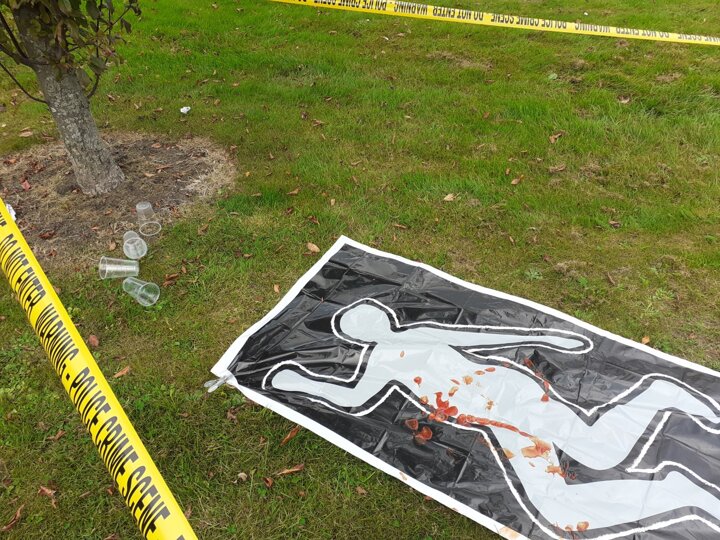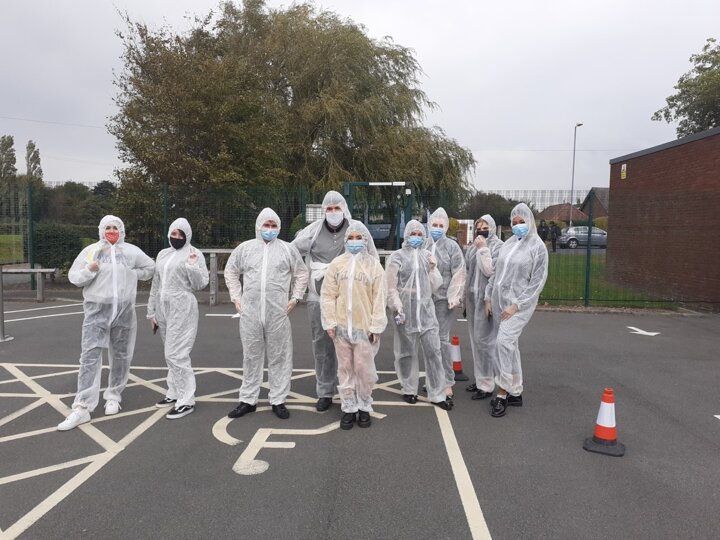Criminology
Head of Department - Mrs L. Critchley
WJEC (2 YEAR COURSE)
Why choose Criminology?
An understanding of criminology is relevant to many job roles within the criminal justice sector, social and probation work and sociology and psychology. Criminology is becoming a popular and widely recognized Level 3 subject, but is often studied at Level 4 in University and Further Education.
WJEC Level 3 Diploma in Criminology is a qualification with elements of psychology, law and sociology that complements studies in humanities.
This is an Applied General qualification. This means it is designed primarily to support learners progressing to university. It has been designed to offer exciting and interesting experiences that focus learning for 16-19 year-old learners and adult learners through applied learning, i.e. through the acquisition of knowledge and understanding in purposeful contexts linked to the criminal justice system, visits to local Magistrates courts, Crown Court and visiting speakers, who work in the judicial system are necessary parts of this course.
It is important to note that this qualification is awarded in grades equivalent to traditional A Level subjects (A*-E). Each level given, is recognized by UCAS and equates to similar traditional A Levels in University points.
Preconditions for taking the course
A grade 5 or above in English is needed to be able to study this course.
YEAR 12
Unit 1: Autumn Term- (September to December)
Not all types of crime are alike. What different types of crime take place in our society? What kinds of crime exist about which we know very little, or which are simply not reported to the police and the media? How do we explain people's reluctance to come forward about crimes of which they have been the victim? Some crimes which seem inoffensive, such as counterfeiting of designer goods, have actually been linked to the funding of more serious crime such as terrorism and people trafficking; so why do people turn a ‘blind eye’ to these 'mild' crimes? What methods have governments and other agencies used to raise social awareness of these crimes?
Knowing about the wide range of different crimes and the reasons people have for not reporting such crimes will provide an understanding of the complexity of behaviours and the social implications of such crimes and criminality. At the end of this unit, you will have gained skills to differentiate between myth and reality when it comes to crime and to recognise that common representations may be misleading and inaccurate. You will have gained the skills to understand the importance of changing public perceptions of crime. You will be able to use and assess a variety of methods used by agencies to raise awareness of crime so that it can be tackled effectively. You will have gained the skills to plan a campaign for change in relation to crime; for example, to raise awareness, change attitudes or change reporting behaviour.
CONTROLLED ASSESSMENT: UNIT 1 (8 HOURS) INTERNALLY ASSESSED/EXTERNALLY VERIFIED
Unit 2 Spring/ (January -May)
How do we decide what behaviour is criminal? What is the difference between criminal behaviour and deviance? How do we explain why people commit crime? What makes someone a serial killer, or abusive to their own families? Criminologists have produced theoretical explanations of why people commit crime, but which is the most useful? Are these theories relevant to all types of crime? What can we learn from the strengths and weaknesses of each? How can these theories be applied to real life scenarios and real life crimes?
At the end of this unit you will have gained the skills to evaluate some criminological theories and know there are debates within the different theories. You will understand how changes in criminological theory have influenced policy. You will also have gained the skills to apply the theories to a specific crime or criminal in order to understand both the behaviour and the theory.
EXTERNAL ASSESSMENT: UNIT 2 EXAMINATION (1.5 HOURS)
YEAR 13
UNIT 3: (June- November- Year 13)
What are the roles of personnel involved when a crime is detected? What investigative techniques are available to investigators to help to identify the culprit? Do techniques differ depending on the type of crime being investigated? What happens to a suspect once charged by the police and the Crown Prosecution Service (CPS)? What safeguards are in place to ensure a suspect has a fair trial?
The criminal trial process involves many different people and agencies. Learning about the roles of these will give you a clearer insight into what happens once a crime is detected and the process that leads to either a guilty or non-guilty verdict. There are strict rules as to how evidence is collected from a crime scene and also strict rules governing the giving of evidence in court; learning about these rules will allow you to review the trial process and assess whether the aims of the criminal justice system have been met. You may be familiar with the role of the jury in the Crown Court, but you may not be aware of the many different factors that influence jury decision-making. By undertaking this unit, you will be able to assess the use of lay people in determining the fate of a suspect and evaluate the criminal trial process from crime scene to courtroom.
CONTROLLED ASSESSMENT: UNIT 3 (8 HOURS) INTERNALLY ASSESSED/EXTERNALLY VERIFIED
UNIT 4: (November-June)
Why do most of us tend to obey the law even when to do so is against our own interests? What social institutions have we developed to ensure that people do obey laws? What happens to those who violate our legal system? Why do we punish people? How do we punish people? What organisations do we have in our society to control criminality or those who will not abide by the social rules that most of us follow? We spend a great deal of taxpayers' money on social control, so how effective are these organisations in dealing with criminality?
Most people in our society are law-abiding and unwilling to break laws. Law-breaking is frequently of the petty variety, so serious crime and repeat offending is often restricted to a few people who cannot or will not abide by the rules that most of us consider to be so important. Society has had to develop a complex system of mechanisms, processes and organisations to ensure that people do not break the law. If they do commit crime, society needs to be protected from their behaviour. These social institutions each have different mechanisms, ideologies and policies. You will learn something of their variety, how they work and their effectiveness in preventing and protecting us from criminality.
EXTERNAL ASSESSMENT: UNIT 4 SYNOPTIC EXAMINATION (1.5 HOURS)
|
WJEC Level 3 Diploma in Criminology |
|||||
|
Unit number |
Entry code |
Unit title |
|
Assessment |
GLH |
|
1 |
|
Changing Awareness of Crime |
Mandatory |
Internal |
90 |
|
2 |
|
Criminological Theories |
Mandatory |
External |
90 |
|
3 |
|
Crime Scene to Courtroom |
Mandatory |
Internal |
90 |
|
4 |
|
Crime and Punishment |
Mandatory |
External |
90 |
Preconditions for taking the course
A grade 5 or above in English is needed to be able to study this course.
Please follow the link below for further information:
https://www.wjec.co.uk/media/ievn4ihq/applied-certificate-in-criminology-specification-from-2015.pdf
Enrichment
Sixth Form Forensic day
Resources
Please follow the link below for further information:
https://www.wjec.co.uk/media/ievn4ihq/applied-certificate-in-criminology-specification-from-2015.pdf
Careers
Where will this course lead me?
The main purpose of the WJEC Level 3 Diploma in Criminology is mainly to use the qualification to support access to higher education degree courses, such as:
· BSc Criminology
· BA Criminology
· BA Criminology and Criminal Justice
· BSc (Hons) Criminology and Psychology
· LLB (Hons) Law with Criminology
· BA (Hons) Criminology and Sociology
· BA (Hons) Criminology
· BSc (Hons) Psychology and Sociology
· BSc Criminology with Law
Alternatively, the qualification allows learners to gain the required understanding and skills to be able to consider employment within some aspects of the criminal justice system, e.g. the National Probation Service, the Courts and Tribunals Service or the National Offender Management Service, Social work, Law or to further continue to study Psychology at Level 4.
https://www.prospects.ac.uk/careers-advice/what-can-i-do-with-my-degree/criminology



